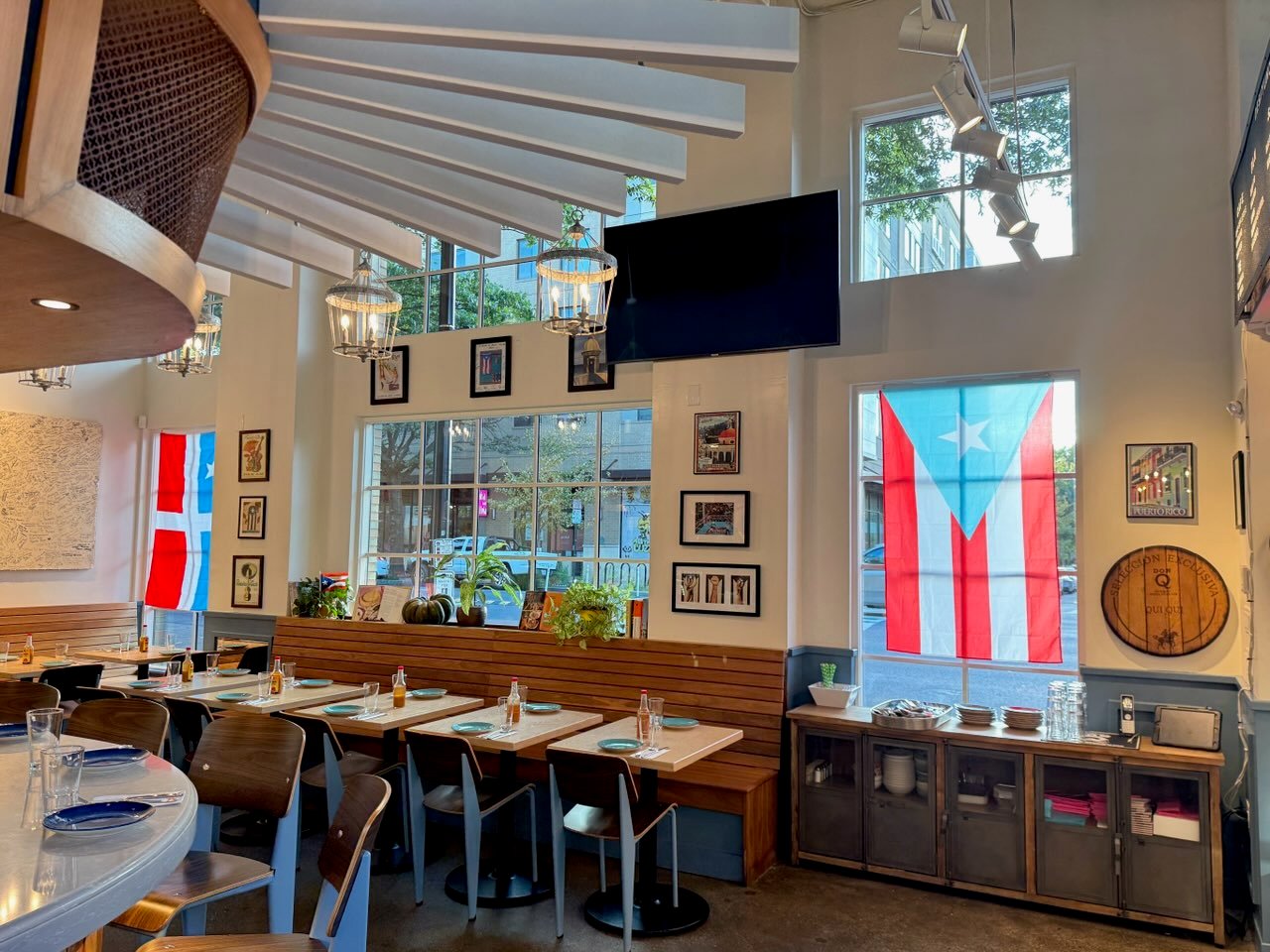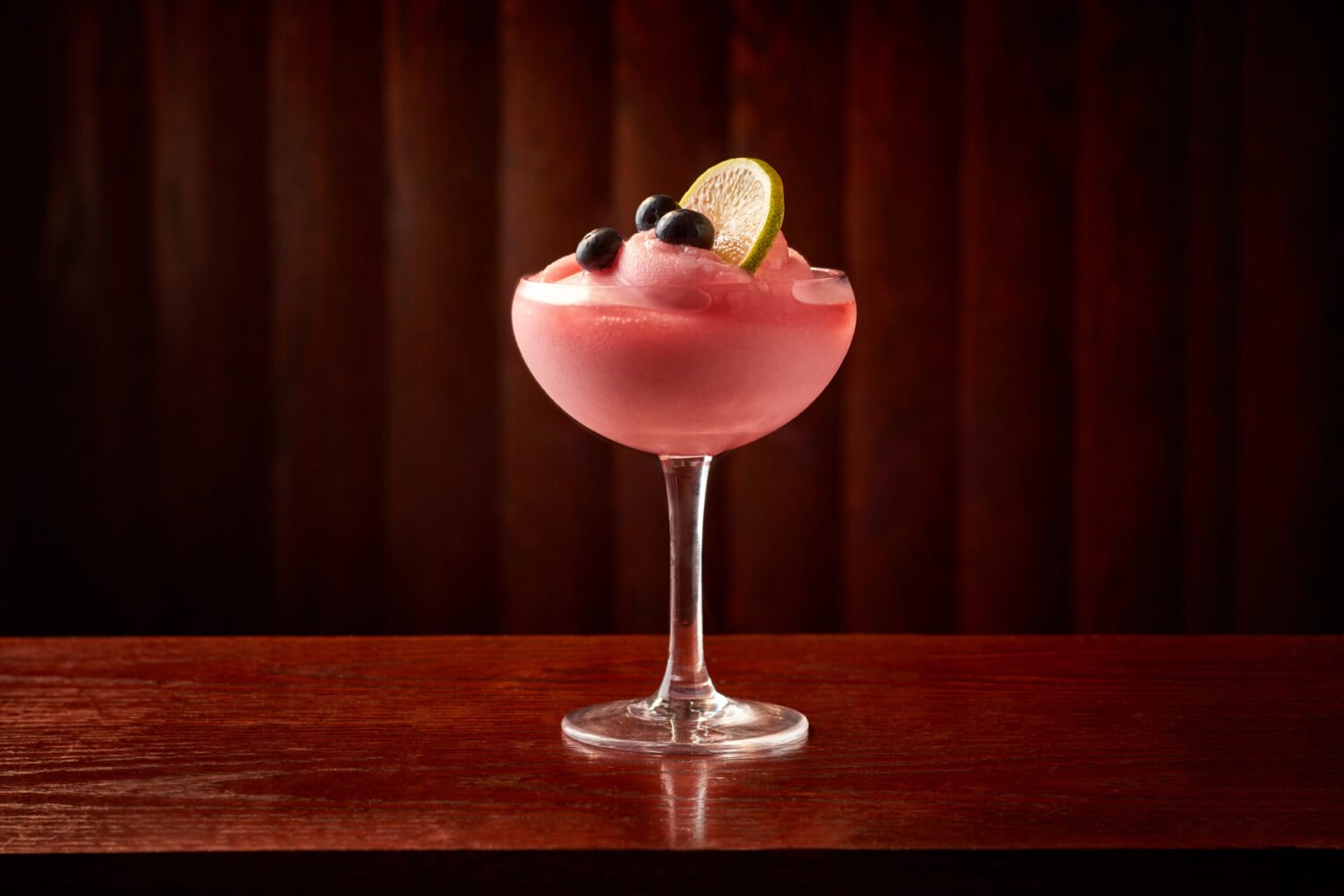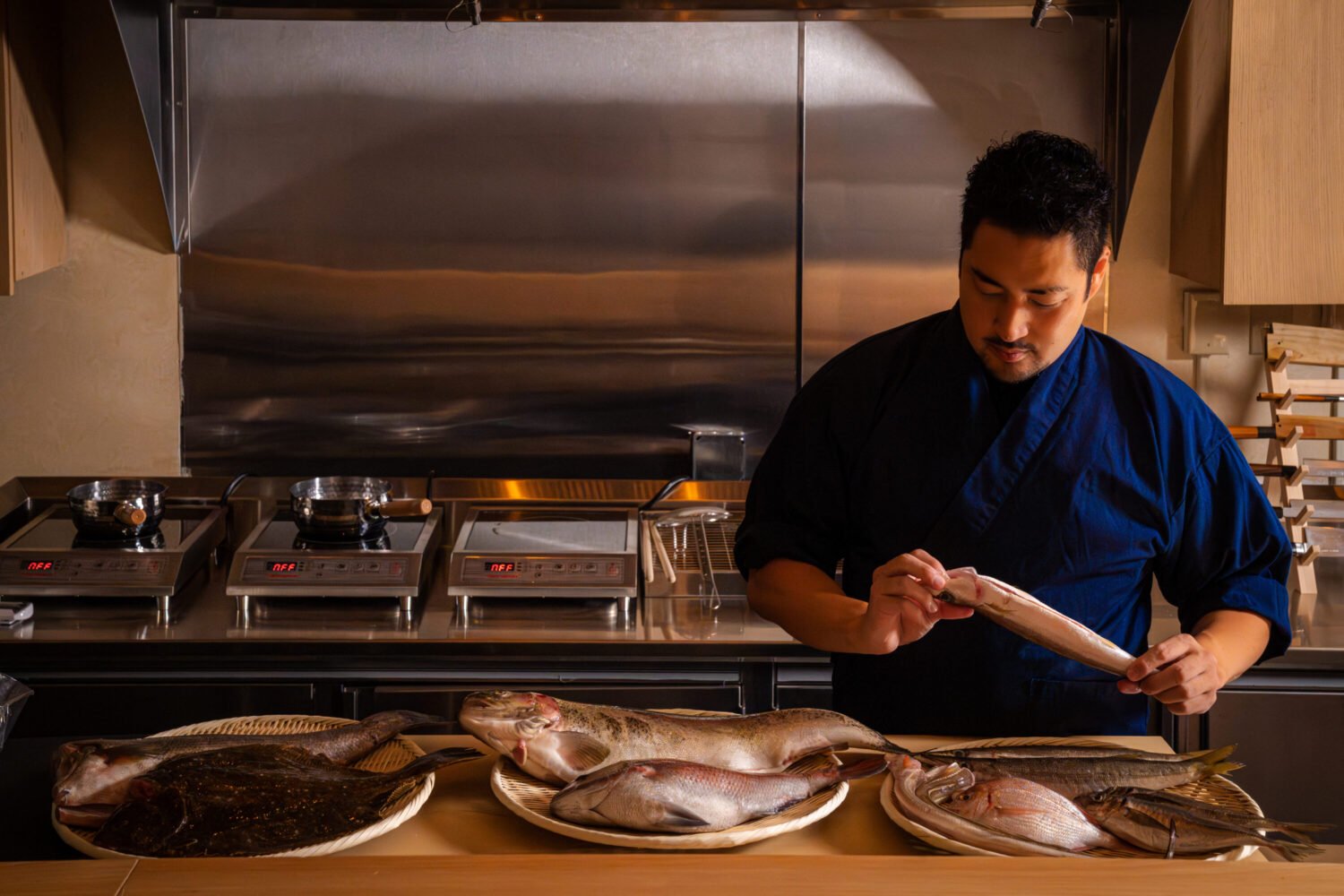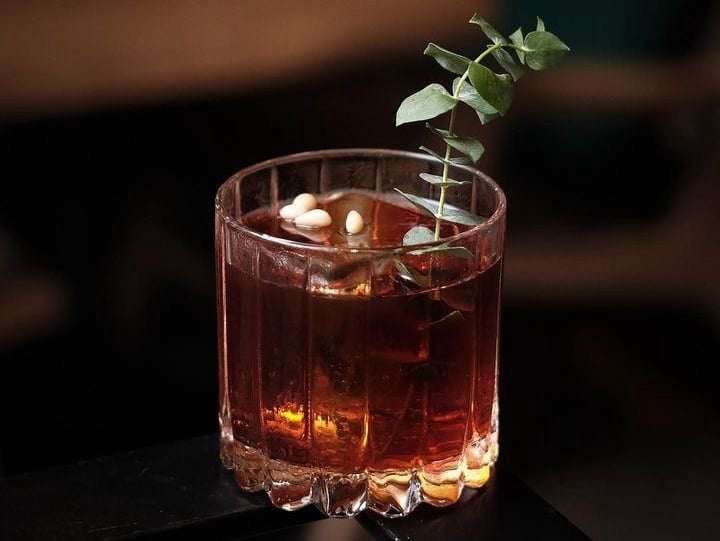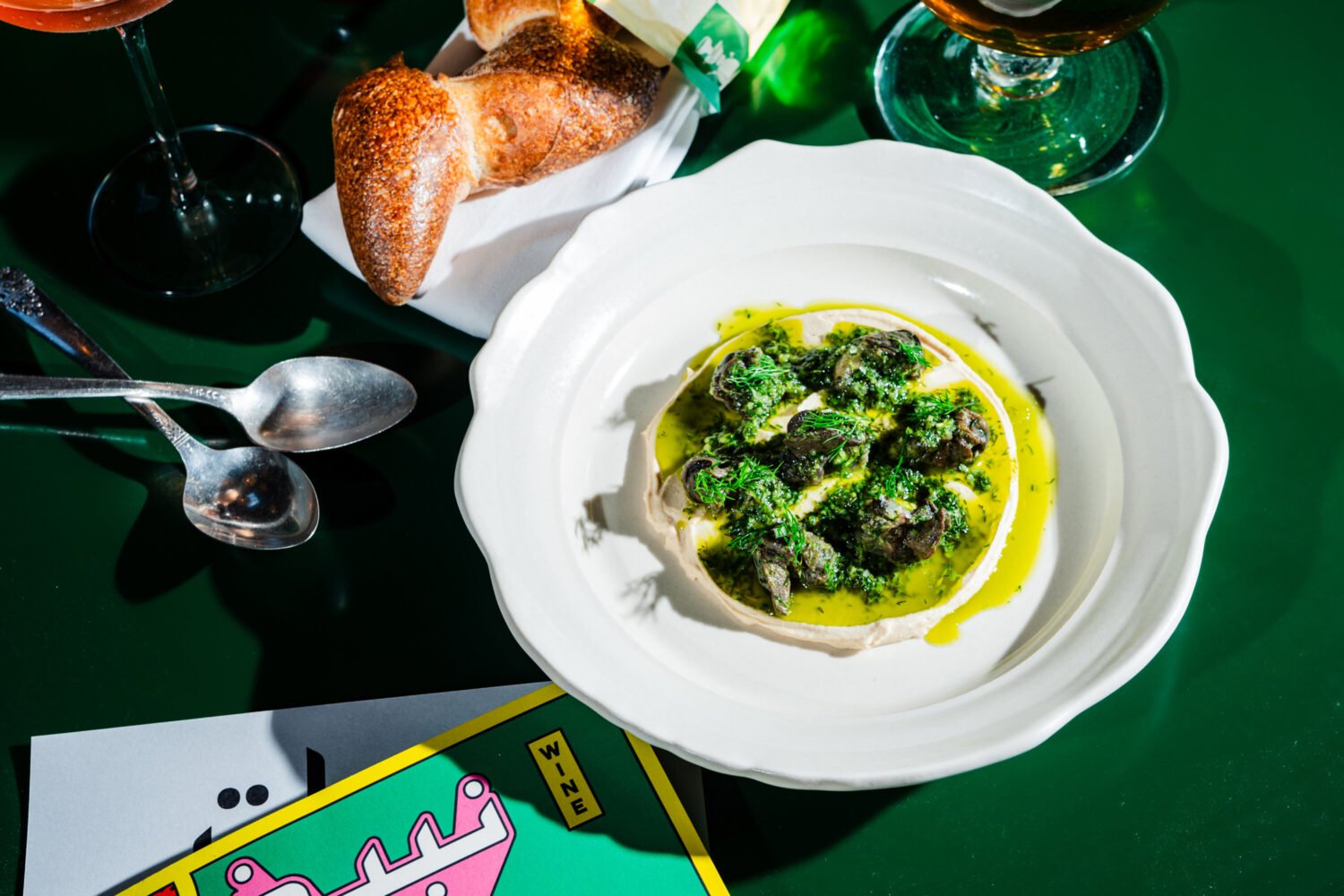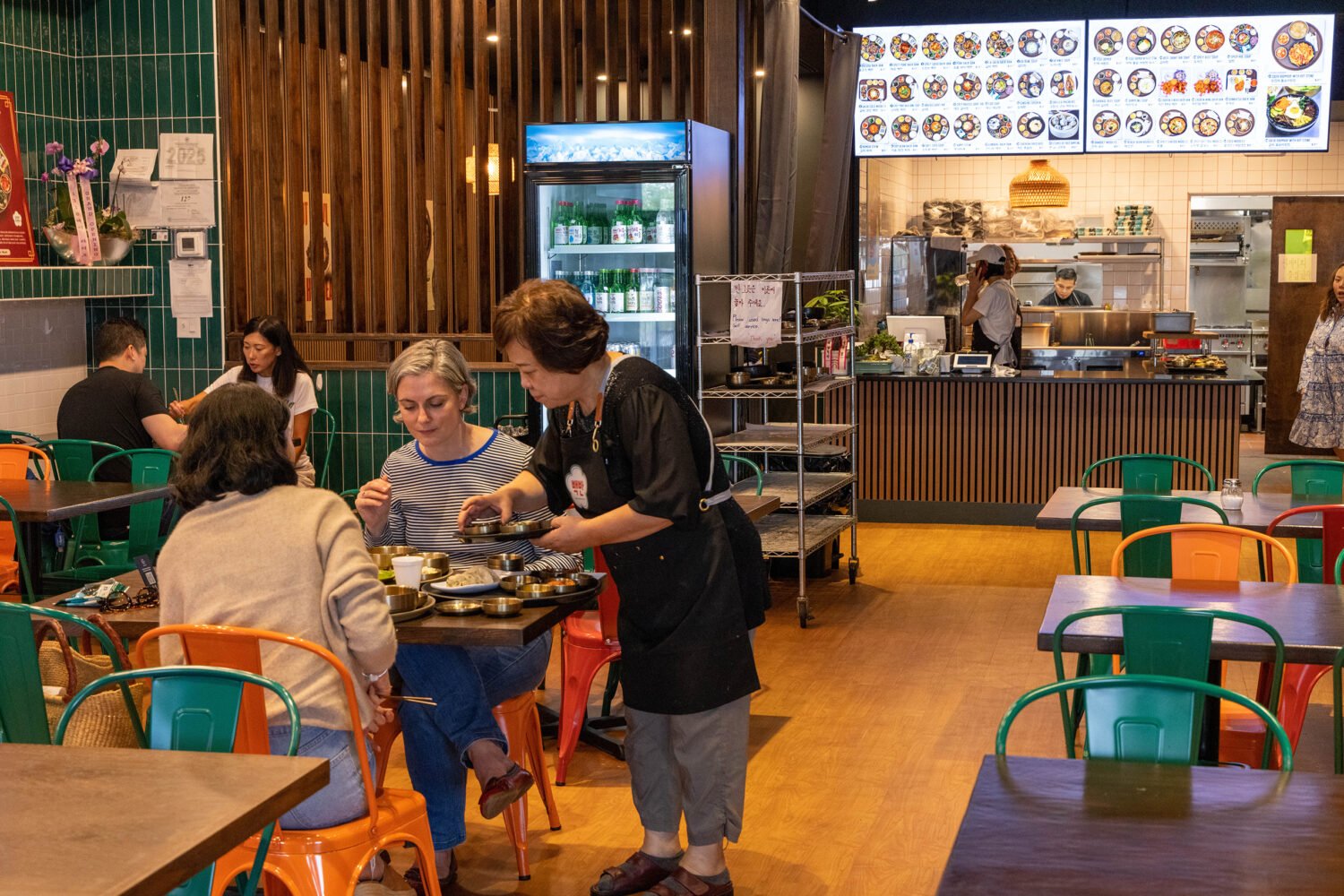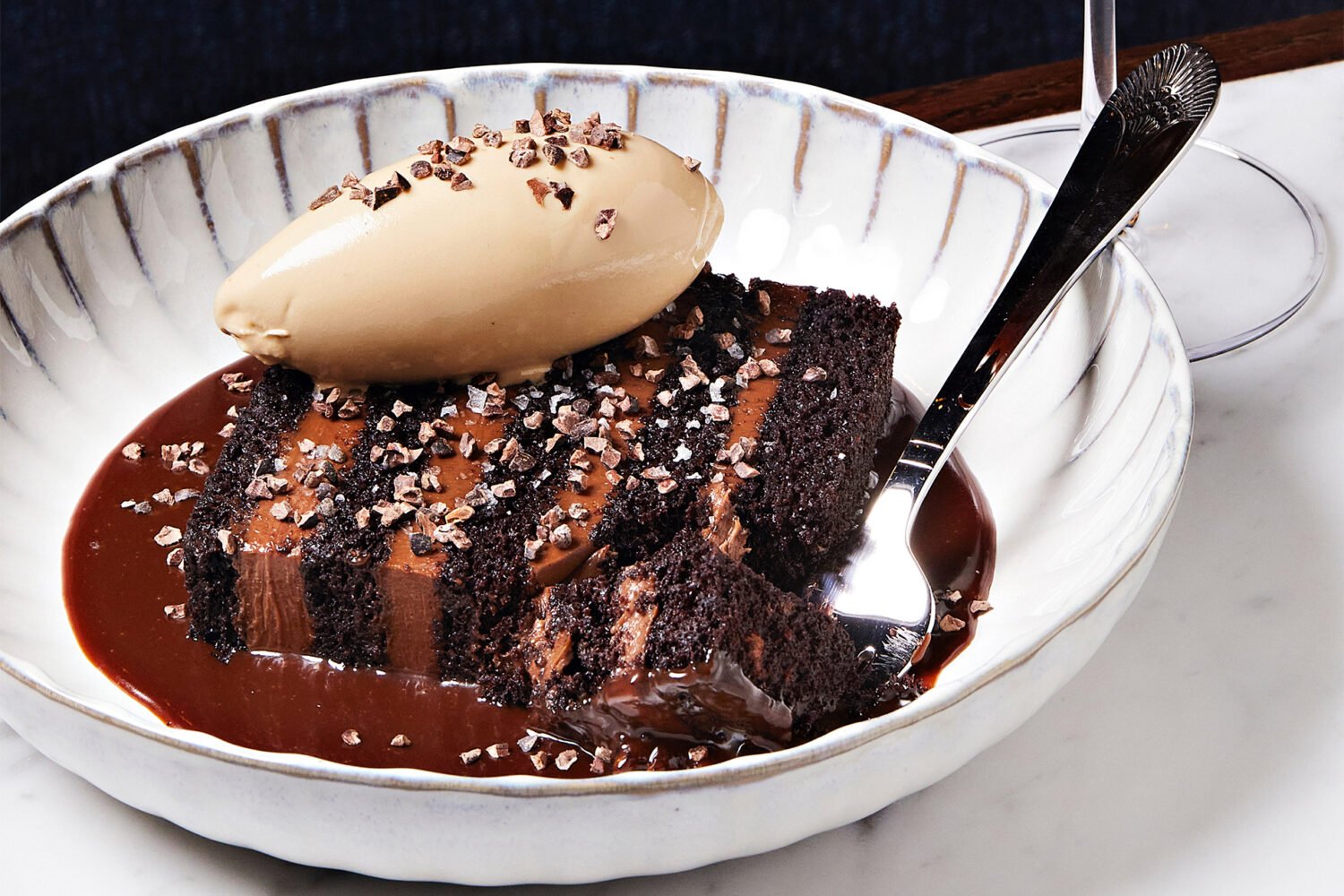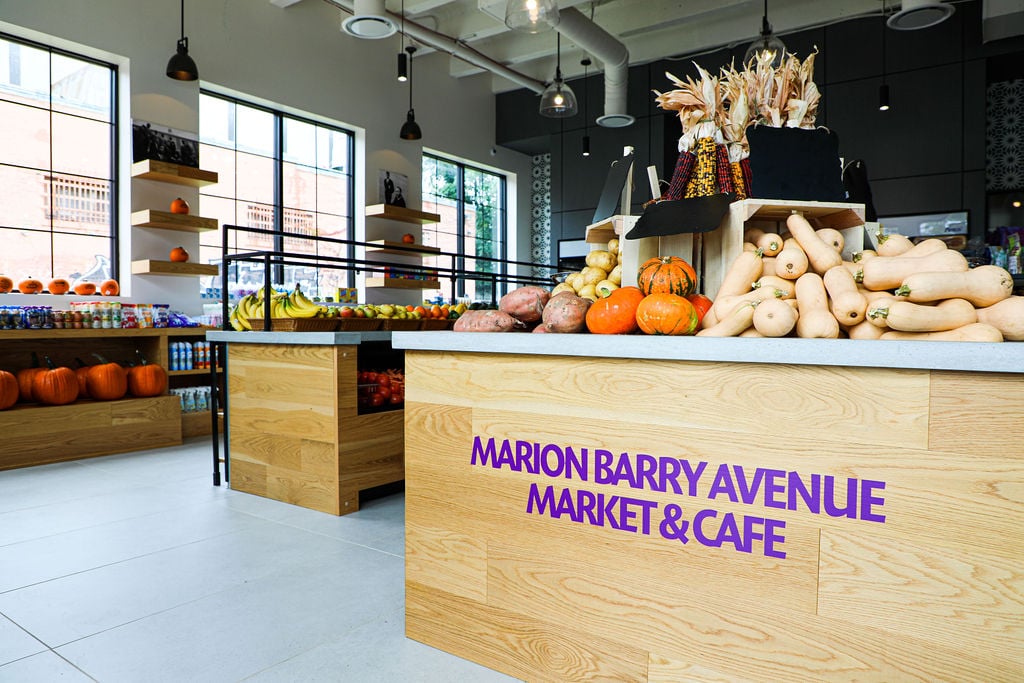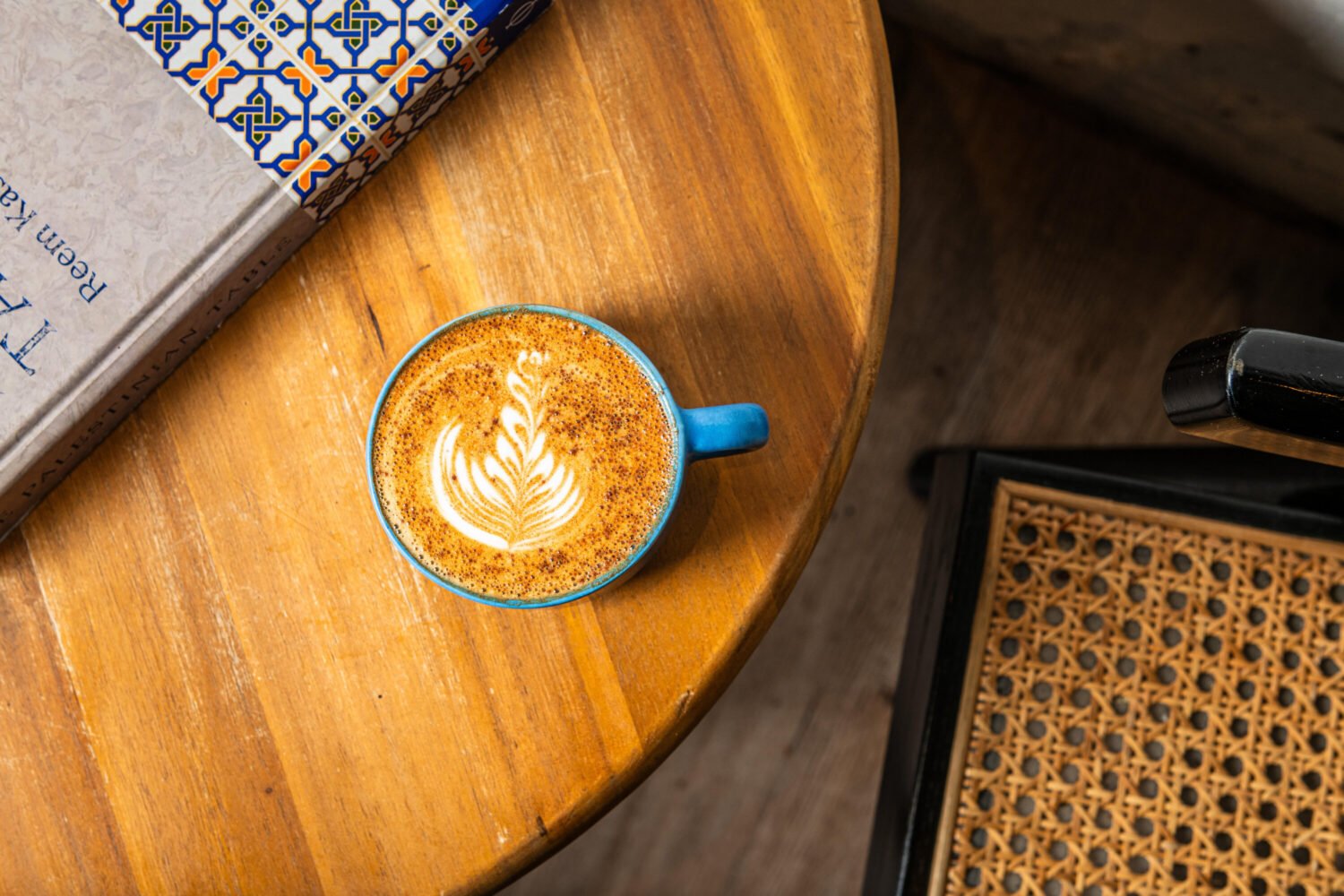Qui Qui, 3227 Georgia Ave., NW
For Puerto Rican culinary culture in DC, there’s nowhere quite like Qui Qui, the vibrant restaurant where chef-owner Ismael Mendez blends music with island sazón.
But in June, Qui Qui’s second-story windows went dark when its downstairs host, cocktail bar The Passenger, was sold. Two weeks ago, Mendez reopened in a much roomier Park View space (formerly home to Tabla) on Georgia Avenue. He considers the move an upgrade in every way.
“We’re not hidden, we’re not on the second floor,” says Mendez. “Everybody’s got a front row seat to what we’re doing here.”
Besides more seats, the new space has a patio, high ceilings, and handsome wood banquettes. The DC salsa band Orquesta Manplesa played at Qui Qui’s grand reopening in late September, and they’ll continue to play at the restaurant on the first Friday evening of every month.
Mendez’s menu remains homey and traditional, spanning the breadth of Puerto Rican cooking. There are small bites like ceviche and octopus salad, and fried items like meat-filled pastelillos and salt-cod bacalaítos. Mofongo (garlicky smashed plantains) can be topped with shrimp, fried pork, or stewed pigeon peas. And the signature dish at Qui Qui is the chuleta kan-kan (a huge fried tomahawk pork chop). As much as any of these dishes though, Mendez continues to be proud of his simple stewed habichuelas (red beans), a Puerto Rican staple. “It takes you back home,” he says.
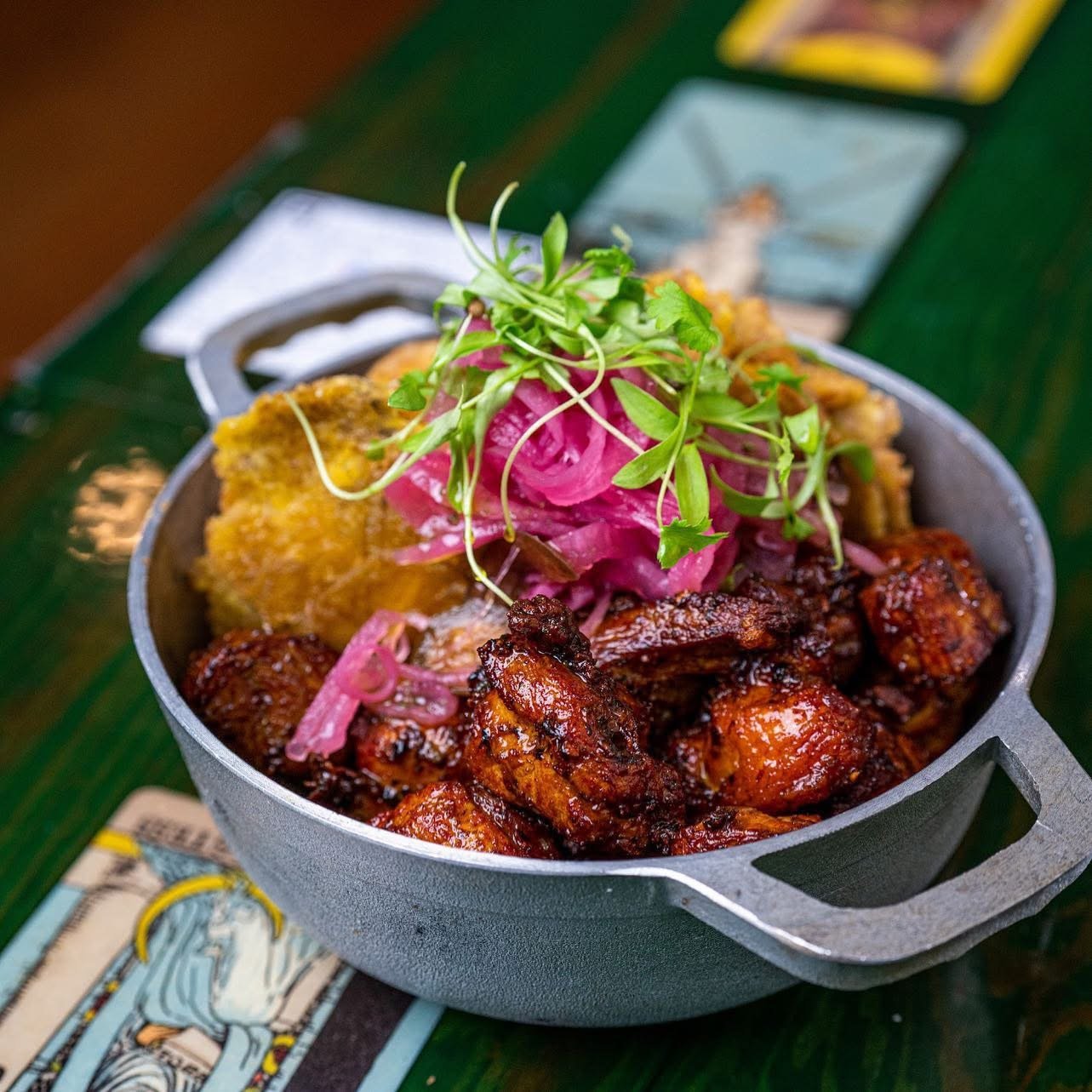
Bartender Tom Brown sold the Passenger, a pioneer cocktail bar and industry hangout, to Sanjay Mandhaiya of Pappe and Karravaan, who plans to expunge its divey vibes and reopen it as a classic American bistro-tavern in the fall. By the time Mandhaiya made that announcement, Qui Qui had already found its new space on Georgia Avenue.
“We were looking for a new home,” Mendez says. “We were forced to leave where we were, but that just sped up the process.”
A New Jerseyan of Puerto Rican and Mexican descent, Mendez studied at L’Academie de Cuisine and worked in Italian restaurant kitchens—and at Spike Gjerde’s A Rake’s Progress—before he decided to focus on the island cuisine of his father and grandmother, which he felt was underrepresented in the city. “DC needed something different,” he says.

